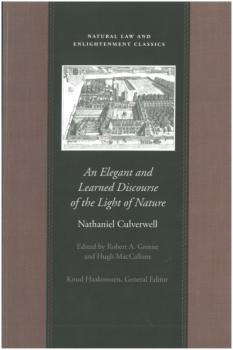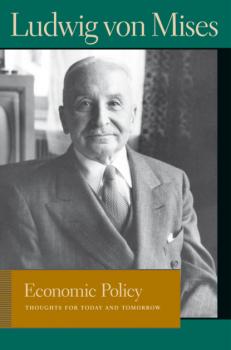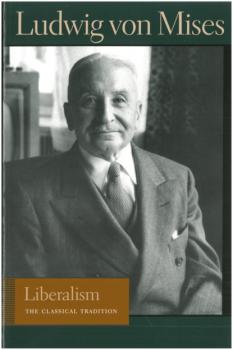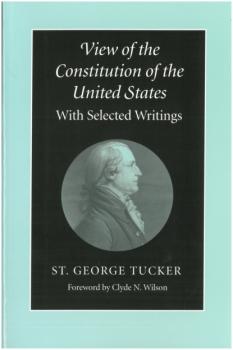ТОП просматриваемых книг сайта:
ЛИТМИР - LITMIR.BIZ - Электронная библиотека
Скачивание или чтение онлайн электронных книг.Аннотация
The works found in Essays on Church, State, and Politics, which originated as disputations, theses, and pamphlets, were direct interventions in the unresolved issue of the political role of religion in Brandenburg-Prussia, a state in which a Calvinist dynasty ruled over a largely Lutheran population and nobility as well as a significant Catholic minority.Christian Thomasius (1655–1728) was a German philosopher and legal theorist.Ian Hunter is Australian Professorial Fellow at the Centre for the History of European Discourses, University of Queensland, Australia.Thomas Ahnert is a Senior Lecturer in History at the University of Edinburgh.Frank Grunert is Scientific Collaborator at the Institut für Deutsche Philologie, Ludwig-Maximilians Universität, Munich.Please note: This title is available as an ebook for purchase on Amazon, Barnes and Noble, and iTunes.
Epistemological Problems of Economics - Людвиг фон Мизес
Liberty Fund Library of the Works of Ludwig von MisesАннотация
First published in German in 1933 and in English in 1960, Epistemological Problems of Economics presents Ludwig von Mises’s views on the logical and epistemological features of social interpretation as well as his argument that the Austrian theory of value is the core element of a general theory of human behavior that transcends traditional limitations of economic science.This volume is unique among Mises’s works in that it contains a collection of essays in which he contested the theories of intellectuals he respected such as Carl Menger, Eugen von Böhm-Bawerk, and Max Weber. Mises describes how value theory applies to human action at all times and places as opposed to economic theory, which applies only to a human action guided by economic calculation.In a review of Epistemological Problems of Economics that was published in Teacher’s College Record in 1965, F. A. Hayek stated, “If Professor Mises’s Human Action . . . must be regarded as the definitive statement of his views, the distinctive features of his notions of the nature of social science have found their freshest expression in the present series of essays, dating from 1928 to 1933.”Ludwig von Mises (1881–1973) was the leading spokesman of the Austrian School of economics throughout most of the twentieth century.Bettina Bien Greaves is a former resident scholar and trustee of the Foundation for Economic Education and was a senior staff member at FEE from 1951 to 1999.Please note: This title is available as an ebook for purchase on Amazon, Barnes and Noble, and iTunes.
An Elegant and Learned Discourse of the Light of Nature - Nathaniel Culverwell
Natural Law and Enlightenment ClassicsАннотация
An Elegant and Learned Discourse of the Light of Nature is a concerted effort at intellectual mediation in the deep religious dispute of the English civil war in the seventeenth century. On one side was the antinomian assertion of extreme Calvinists that the elect were redeemed by God’s free grace and thereby free from ordinary moral obligations. Opposite to that was the Arminian rejection of predestination and assertion that Christ died for all, not just for the elect.Robert A. Greene is Professor of English at the University of Massachusetts at Boston.Hugh MacCallum was Professor Emeritus of English at the University of Toronto. Please note: This title is available as an ebook for purchase on Amazon and Barnes and Noble.
Аннотация
Economic Policy contains six lectures Ludwig von Mises delivered in 1959 for the Centro de Estudios sobre la Libertad in Argentina. The lectures were posthumously edited by Mises’s wife, Margit, and George Koether, a student and long-time friend of Mises. This volume serves as an excellent introduction to what Mises sees as the simple truths of history in terms of economic principles. In straightforward language, Mises explains topics such as capitalism, socialism, interventionism, inflation, foreign investment, and economic policies and ideas.Ludwig von Mises (1881–1973) was the leading spokesman of the Austrian School of economics throughout most of the twentieth century.Bettina Bien Greaves is a former resident scholar and trustee of the Foundation for Economic Education and was a senior staff member at FEE from 1951 to 1999. Please note: This title is available as an ebook for purchase on Amazon, Barnes and Noble, and iTunes.
Аннотация
George Washington speaks for himself on behalf of liberty and the emerging American republic in this handsome book, the only one-volume compilation in print of his vast writings.While Washington is recognized as a military leader and the great symbolic figure of the early republic, many fail to appreciate the full measure of his contributions to the country. In these selections, his political ideas and juEAments stand out with remarkable clarity. His writings are replete with sustained, thoughtful commentary and keen political insight.This volume includes correspondence, all of his presidential addresses, various public proclamations, his last will and testament, and the most comprehensive recompilation of the “discarded first inaugural” ever printed.W. B. Allen is Professor of Political Philosophy and Director of the Program in Public Policy and Administration at Michigan State University. Please note: This title is available as an ebook for purchase on Amazon and Barnes and Noble.
Аннотация
The Crisis of the Seventeenth Century collects nine essays by Trevor-Roper on the themes of religion, the Reformation, and social change.In his longest essay, “The European Witch-craze of the Sixteenth and Seventeenth Centuries,” Trevor-Roper points out that “in England the most active phase of witch-hunting coincided with times of Puritan pressure—the reign of Queen Elizabeth and the period of the civil wars—and some very fanciful theories have been built on this coincidence. But . . . the persecution of witches in England was trivial compared with the experience of the Continent and of Scotland. Therefore . . . [one must examine] the craze as a whole, throughout Europe, and [seek] to relate its rise, frequency, and decline to the general intellectual and social movements of the time.”Because Trevor-Roper believes that “the English Revolution of the seventeenth century cannot be isolated from a general crisis in Europe,” he devotes the longest of his essays to the European Witch-craze. Events in England—and the intellectual currents from which they emerged and to which they gave impetus—cannot be understood apart from events and intellectual currents on the Continent.Trevor-Roper acknowleEAes that the belief in witches, and the persecution of people believed to be witches, may be, to some at least, “a disgusting subject, below the dignity of history.” However, he goes on, “[I]t is also a historical fact, of European significance, and its rise precisely in the years of the Renaissance and Reformation is a problem which must be faced by anyone who is tempted to overemphasize the ‘modernity’ of that period.”Hugh Trevor-Roper, Lord Dacre (1914–2003) was Regius Professor of Modern History at the University of Oxford. Please note: This title is available as an ebook for purchase on Amazon, Barnes and Noble, and iTunes.
Аннотация
This book presents the theoretical and practical arguments for liberalism in the classical tradition as defined by Mises as “the liberal doctrine of the harmony of the rightly understood interests of all members of a free society founded on the principle of private ownership of the means of production.” The foundation of liberalism, Mises says, rests on an understanding and appreciation of private property, social cooperation, the freedom idea, ethics and morality, democracy, and the legitimate role of government. Also in this book, Mises contrasts liberalism with other conceivable systems of social organization such as socialism, communism, and fascism.Ludwig von Mises (1881–1973) was the leading spokesman of the Austrian School of economics throughout most of the twentieth century.Bettina Bien Greaves is a former resident scholar and trustee of the Foundation for Economic Education and was a senior staff member at FEE from 1951 to 1999. Please note: This title is available as an ebook for purchase on Amazon, Barnes and Noble, and iTunes.
The Anti-capitalistic Mentality - Людвиг фон Мизес
Liberty Fund Library of the Works of Ludwig von MisesАннотация
St. George Tucker’s View of the Constitution, published in 1803, was the first extended, systematic commentary on the United States Constitution after its ratification. Generations learned their Blackstone and their understanding of the Constitution through Tucker.Clyde N. Wilson is Professor of History and editor of The Papers of John C. Calhoun at the University of South Carolina. Please note: This title is available as an ebook for purchase on Amazon, Barnes and Noble, and iTunes.
Аннотация
Roscoe Pound, former dean of Harvard Law School, delivered a series of lectures at the University of Calcutta in 1948. In these lectures, he criticized virtually every modern mode of interpreting the law because he believed the administration of justice had lost its grounding and recourse to enduring ideals.Now published in the U.S. for the first time, Pound’s lectures are collected in Liberty Fund’s The Ideal Element in Law, Pound’s most important contribution to the relationship between law and liberty.The Ideal Element in Law was a radical book for its time and is just as meaningful today as when Pound’s lectures were first delivered. Pound’s view of the welfare state as a means of expanding government power over the individual speaks to the front-page issues of the new millennium as clearly as it did to America in the mid-twentieth century.Pound argues that the theme of justice grounded in enduring ideals is critical for America. He views American courts as relying on sociological theories, political ends, or other objectives, and in so doing, divorcing the practice of law from the rule of law and the rule of law from the enduring ideal of law itself.Roscoe Pound is universally recognized as one of the most important legal minds of the early twentieth century. Considered by many to be the dean of American jurisprudence, Pound was a former Justice of the Supreme Court of Nebraska and served as dean of Harvard Law School from 1916 to 1936. Please note: This title is available as an ebook for purchase on Amazon, Barnes and Noble, and iTunes.










